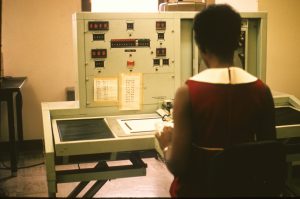Exploring the Frontiers of Educational Technology
Technology has completely revolutionized the world in recent years, and education is no exception. With the rapid advancements in technology, educational technology has emerged as a promising area that has the potential to transform the way we learn and teach. Exploring the frontiers of educational technology is crucial in understanding its potential and staying updated on the latest trends and innovations in the field.
The Evolution of Educational Technology
In order to fully understand the frontiers of educational technology, it is important to look back and trace its evolution. From the use of audio-visual aids in traditional classrooms to the introduction of online learning platforms, educational technology has come a long way. Today, it encompasses a wide range of tools and techniques, including virtual and augmented reality, artificial intelligence, gamification, and more. These advancements have not only transformed classroom learning but have also opened up avenues for accessible and personalized education for learners of all ages and backgrounds.
The Impact of Educational Technology
The impact of educational technology is vast and far-reaching. It has not only changed the way knowledge is delivered but has also made learning more interactive and engaging. With the use of technology, learning is no longer limited to the four walls of a classroom. Students can access learning material anytime, anywhere, and at their own pace. This has made education more accessible to those living in remote areas or with physical limitations. Moreover, educational technology has also made learning more hands-on through the use of simulations and virtual labs, providing students with a more realistic and practical learning experience.
Personalization and Adaptability
One of the most significant frontiers of educational technology is personalization and adaptability. With the use of data and analytics, technology is now able to tailor education to the individual needs and abilities of each student. This has made learning more effective and efficient as students can focus on areas they need improvement in while skipping over content they already know. Adaptive learning technology has also made it possible for students to learn at their own pace, allowing for a deeper understanding of concepts without the pressure of keeping up with the class.
Collaborative and Inclusive Learning
Another frontier of educational technology is its ability to promote collaborative and inclusive learning. Online learning platforms, discussion forums, and virtual classrooms have made it possible for students from different backgrounds and geographical locations to work together and learn from each other. This not only enhances students’ understanding of different perspectives but also teaches them valuable skills such as teamwork and communication.
Challenges and Future Possibilities
Although educational technology has brought about significant improvements in the education sector, it also poses certain challenges. These include the digital divide, lack of technical infrastructure, and the potential for technology to replace human interaction in the classroom. However, with proper implementation and continuous advancements in technology, these challenges can be overcome. The future possibilities of educational technology are endless, with the potential to further improve the learning experience and make education more accessible and inclusive.
In Conclusion
The frontiers of educational technology are constantly expanding, with new advancements and innovations being introduced every day. It is crucial for educators and students alike to stay updated and explore these frontiers to fully understand the potential of educational technology. With proper implementation and continuous improvements, educational technology has the power to shape the future of education and make learning a more personalized, collaborative, and inclusive experience.











